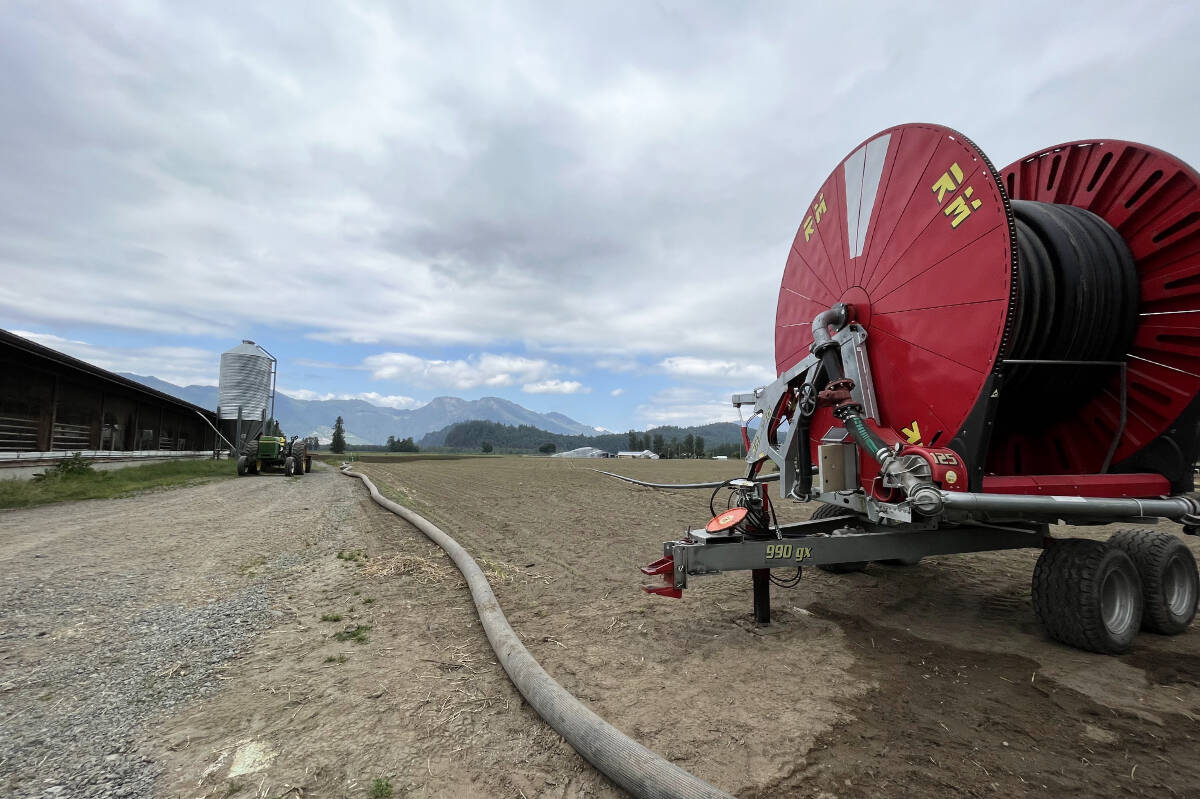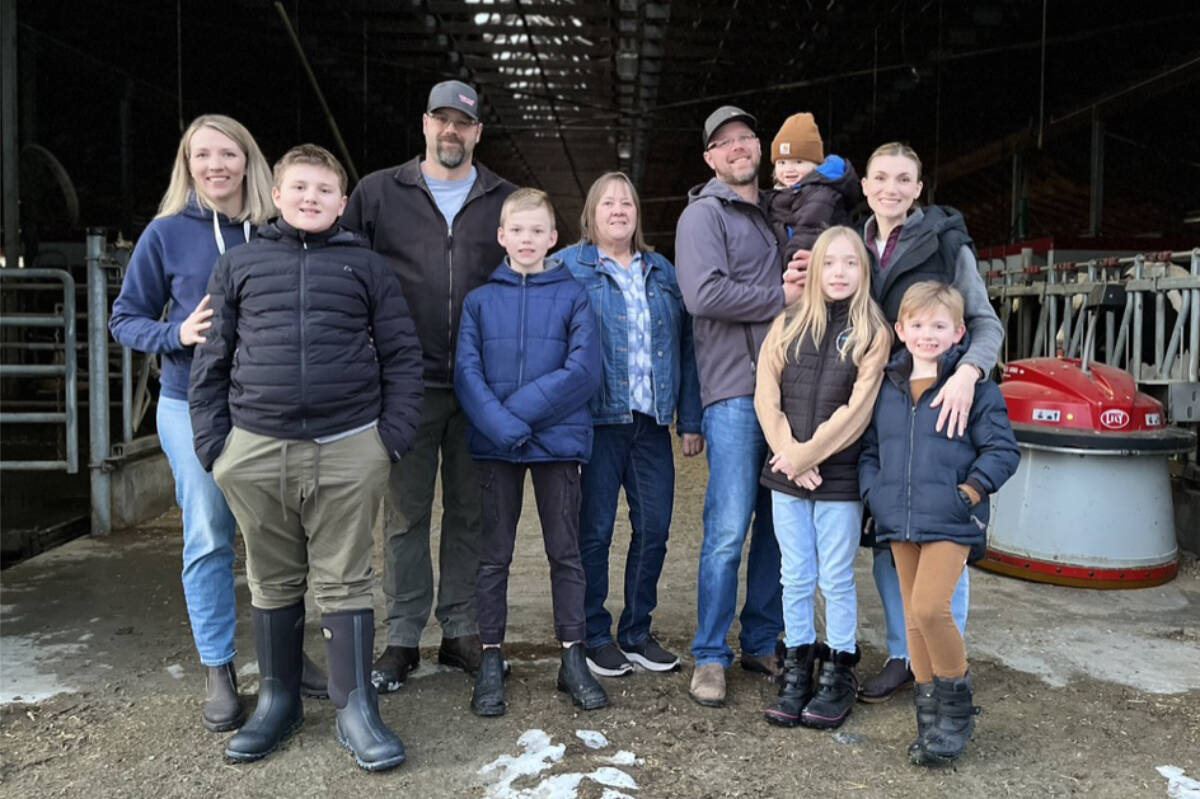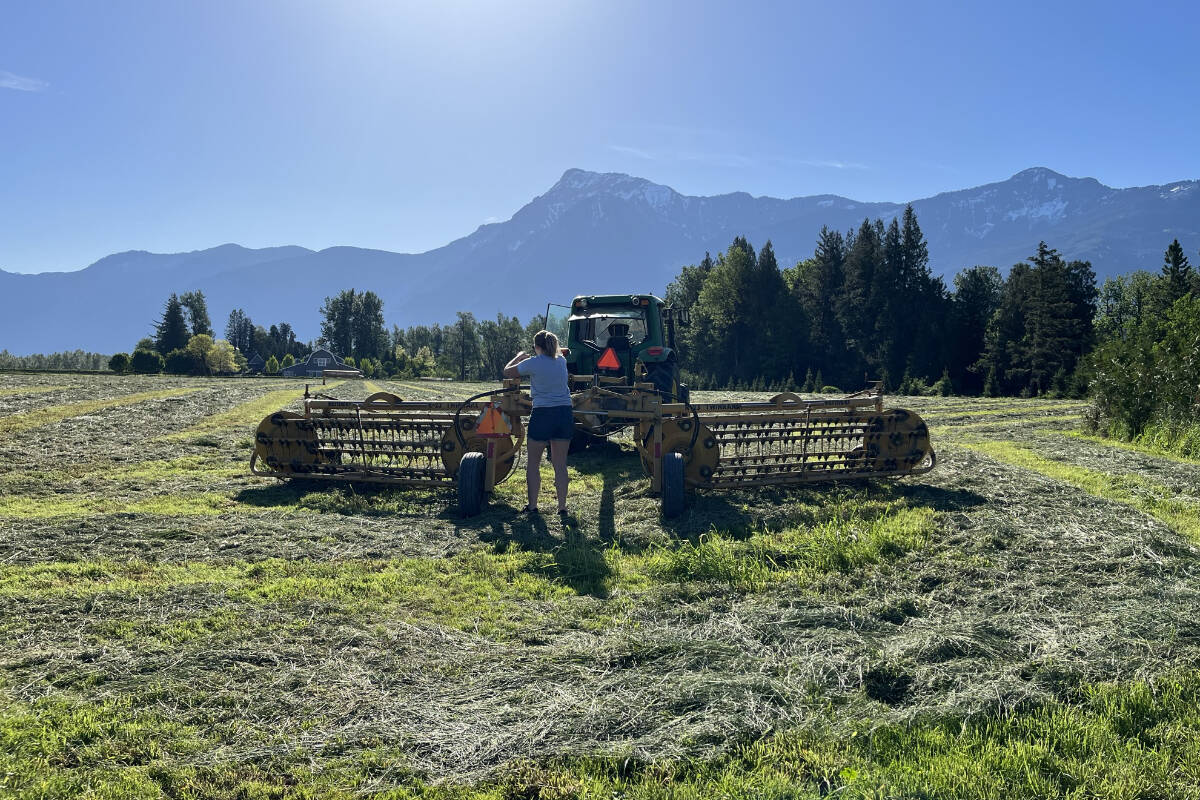Efficiency is key when running any farm, especially when inflation rates have skyrocketed over the last few years.
“I live in a farming community and I think they’re all doing similar things to what we’re doing, but everybody’s doing it in a different way,” said Sarah Sache, who owns West River Farm in Rosedale, B.C., with her husband, Gene Sache, and brother-in-law, Grant Sache.
The Sache farm has been in the family since the mid-70s, but as someone who married into the farm, Sarah said it’s something she had to learn.
“I chose to marry someone who had just chosen that lifestyle. So I embraced the ‘grow where you’re planted’ thing. And I really enjoyed learning about agriculture and being part of producing food. So that’s really special to me.
Along with farming, Sarah is the vice chair of the board at BC Dairy.
“It’s not uncommon now that people don’t have a lot of connection with the farm, so that’s kind of what drives me to be a communicator in the agriculture world.”
The board, all dairy producers themselves, knows firsthand the issues dairy farmers across B.C. face with the inflation rates, and it’s not exactly what you’d expect.
You see, milk is supply managed in Canada by the Canadian Dairy Commission, keeping the price of milk regulated. However, it’s other factors, such as feed, fuel, seed and fertilizer costs, that farmers must find ways to combat.
For West River Farm, this means looking at ways to feed their cows more efficiently while still maintaining the best care for their animals, which are core to the farm’s values, said Sarah.
The farm works with a nutritionist, who considers the cost of specific ingredients (such as adding peas or beet pulp to the silage) without compromising the nutritional value of the rations fed to the cows.
Another practice includes breeding their most efficient cows, which results in more milk from fewer cows.
“That has a benefit from the sustainability perspective in terms of how much manure they’re producing.”
Across the country, Dairy Farmers of Canada have committed to net zero greenhouse gas emissions by 2050.
“We’re working on sustainability and making sure that our farms are ultimately having a positive impact in the country. And for us, that basically looks like a circular system on the farm.”
As the cows are fed a healthy diet, they produce manure which goes back into fertilizing their fields and growing silage crops for the animals to feed on.
“It’s in our interest to be sustainable because if we didn’t, our farm wouldn’t keep producing what it can,” said Sarah.
West River Farm recently invested in its irrigation system to grow the number of crops needed for the animals.
“I think in B.C., we’ve been spoiled in assuming we have unlimited access to water. And that’s really fundamental to any type of agriculture in the province,” said Sarah.
“We need to make sure we’re really careful with our water, we manage it as a resource and plan how we can make the best use of it.”
The updated irrigation system includes a new mainline, well, pump and variable flow device, which will allow water to be pumped more efficiently, said Sarah.
“The new well ensures we have access to sufficient amounts of water to grow our crops and the mainline helps us deliver it from there to our fields. In the field, we use reel hose sprinklers we connect to the water system to apply the water.”
With the increasingly variable weather patterns, the new watering system will ensure the farm receives enough water throughout the year, said Sarah.
“I hope [people] see the commitment that [farmers] have to sustainability and to producing food for our neighbours and ourselves, and trying to do that in the best way that we can.”
AgricultureDairy FarmersHARVEST






